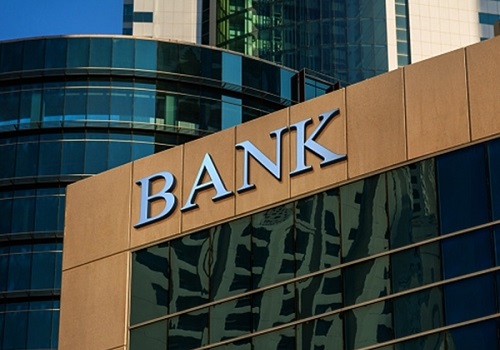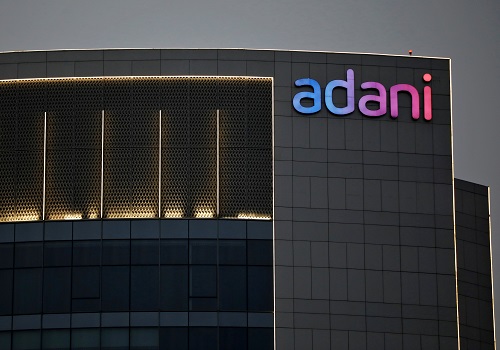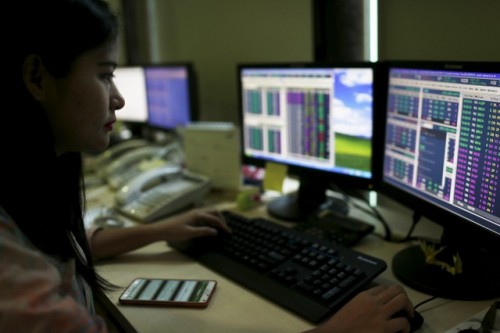Benchmarks snap 3-day winning run
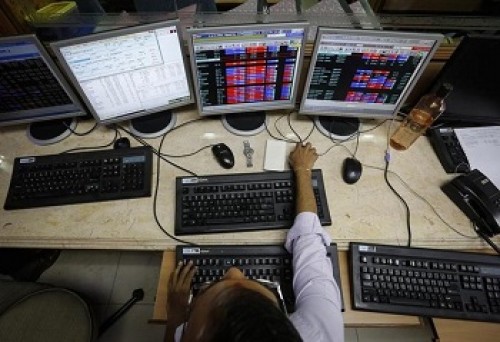
Follow us Now on Telegram ! Get daily 10 - 12 important updates on Business, Finance and Investment. Join our Telegram Channel
Indian equity benchmarks took a U-turn after three consecutive days of gains to end in the red on Thursday, amid profit-booking. Weak global cues also dampened the mood on Dalal Street. Indices opened on a tepid note and traded lower throughout the day, as domestic rating agency CRISIL has estimated FY23 real GDP growth at 7.8 per cent as compared with the 8.5 per cent projected in the Economic Survey. The agency said global growth is expected to slow this year as major economies see a withdrawal of monetary and fiscal stimulus. It will have a direct bearing on India's growth prospects as exports have been a key demand driver of domestic growth during the pandemic. Sentiments remained pessimistic as India’s service sector activity fell in the month of January, as growth was curbed by the escalation of the pandemic. Moreover, job shedding continued and business confidence took a hit. As per the survey report, the seasonally adjusted Nikkei Services Business Activity Index eased to 51.5 in January from 55.5 in December. Further, the Nikkei India Composite PMI Output Index -- which measures both manufacturing and services -- also fell to 53.0 in January from 56.4 in December.
The key benchmarks extended losses and languished near the lows of the day in late afternoon session. Selling further crept in as foreign institutional investors stood as net sellers in the capital market as they offloaded shares worth Rs 183.60 crore on Wednesday. Traders failed to take support with data by Centre for Monitoring Indian Economy (CMIE) showing that India's unemployment rate witnessed a sharp decline to 6.57 per cent in January, the lowest since March 2021, as the country gradually recovers with easing of restrictions following a decline in Omicron cases. Market participants also overlooked Niti Aayog Vice-Chairman Rajiv Kumar asserted that the Union Budget lays the foundation for the country's long-term growth in the next 25 years. Kumar said the government is taking all possible measures to ignite private investments, which will be the best bet to pull the economy out of the shadows of the coronavirus pandemic. Meanwhile, The data released by the government has indicated that India has received foreign direct investment (FDI) inflow of $54.10 billion in April-November period of the current financial year (FY22) . FDI equity inflows during April-November of FY22 was $39.26 billion. It was $43.85 billion during April-November 2020.
On the global front, European markets were trading lower as traders are cautious ahead of the monetary policy announcements from the Bank of England and the European Central Bank. Traders also remain concerned about the raging spread of the coronavirus omicron variant across the globe and its impact on the pace of economic recovery. Asian markets settled mostly higher on Thursday, as the latest batch of company earnings reports kept investors in a buying mood, driving gains on Wall Street. Investors also awaited U.S. January employment data, due out Friday, for direction after the ADP jobs data surprised to the downside. Back home, on the sectoral front, power industry’s stocks were buzzing as India Ratings and Research (Ind-Ra) has maintained a 'neutral' outlook for the power sector for FY23 and expects the demand growth to come back to a normal level of 6 to 7 per cent in the next fiscal year.
Finally, the BSE Sensex fell 770.31 points or 1.29% to 58,788.02 and the CNX Nifty was down by 219.80 points or 1.24% to 17,560.20.
The BSE Sensex touched high and low of 59,557.87 and 58,653.94, respectively. There were 5 stocks advancing against 25 stocks declining on the index.
The broader indices ended in red; the BSE Mid cap index fell 0.90%, while Small cap index was down by 0.38%.
The only gaining sectoral indices on the BSE were Auto up by 0.41%, Consumer Durables up by 0.29% while, IT down by 2.01%, TECK down by 1.76%, Realty down by 1.74%, Capital Goods down by 1.44%, Energy down by 1.27% were the top losing indices on BSE.
The top gainers on the Sensex were ITC up by 1.14%, Maruti Suzuki up by 0.86%, Titan Company up by 0.46%, SBI up by 0.05% and Asian Paints up by 0.03%. On the flip side, HDFC down by 3.23%, Infosys down by 2.76%, Larsen & Toubro down by 2.36%, Bajaj Finserv down by 2.20% and Tech Mahindra down by 1.87% were the top losers.
Meanwhile, domestic rating agency CRISIL has estimated FY23 real GDP growth at 7.8 per cent as compared with the 8.5 per cent projected in the Economic Survey. It said ‘All said, risks to India's economic outlook are still skewed towards the downside’. It also said Finance Minister Nirmala Sitharaman's Budget proposals focused on loosening the purse strings by boosting capital expenditure and going slow on fiscal consolidation are aimed in the right direction. The agency said global growth is expected to slow this year as major economies see a withdrawal of monetary and fiscal stimulus. It will have a direct bearing on India's growth prospects as exports have been a key demand driver of domestic growth during the pandemic.
It said energy prices, especially that of crude oil, are likely to continue firming up, partly owing to geopolitical issues and Brent crude will average up to $85 a barrel as against $70.44 in 2021, which will curtail growth, stoke inflation and widen the current account deficit. Additionally, even if global supply chain disruptions are expected to ease, critical raw material shortages such as those of chips could take time to tide over. The agency expects the nominal growth to come at 12-13 per cent, higher than the 11.1 per cent Budget Estimate, and the headline inflation to average 5.2 per cent. It said the Budget makes way for the 35 per cent increase in capital expenditure by tightening the belt around revenue expenditure, and the government has refrained from giving any direct consumption support in the Budget. It added that frontloading infrastructure spending could bring about faster growth.
The agency said the commitment to the Mahatma Gandhi National Rural Employment Guarantee Act has been reduced to Rs 73,000 crore for FY23 from the Rs 98,000 crore in FY22 and Rs 1.11 lakh crore in FY21, as part of the expenditure cuts. It said ‘extending this job guarantee scheme could have acted as a bridge for boosting short-term incomes and consumption in the rural areas before growth becomes broad-based and the investment cycle kicks off’. On the revenue side, the agency commended the pairing of divestment targets to a realistic level but warned that tightening of financial conditions amid monetary policy normalisation could further add challenges on this front.
The CNX Nifty traded in a range of 17,781.15 and 17,511.15 and there was 6 stocks advancing against 43 stocks declining, while 1 stock remains unchanged on the index.
The top gainers on Nifty were Hero MotoCorp up by 2.30%, Bajaj Auto up by 2.09%, Divi's Lab up by 0.93%, Maruti Suzuki up by 0.75% and ITC up by 0.58%. On the flip side, HDFC down by 3.50%, ONGC down by 2.98%, SBI Life Insurance down by 2.88%, Grasim Industries down by 2.87% and Infosys down by 2.84% were the top losers.
European markets were trading lower; UK’s FTSE 100 decreased 7.99 points or 0.11% to 7,575.01, France’s CAC decreased 21.45 points or 0.3% to 7,093.82 and Germany’s DAX decreased 88.29 points or 0.57% to 15,525.48.
Asian markets settled mostly higher on Thursday, despite sell-off in technology stocks after shares of Facebook’s parent company Meta dipped more than 20 percent in after-hours trading yesterday after the company reported lower-than-expected earnings in its latest quarterly report. On the data front, investors are awaiting the US Labour Department's January nonfarm payroll report, due out Friday, for direction after the ADP jobs data surprised to the downside. Seoul shares gained as markets reopened from holidays and data showed the South Korea's factory activity grew at the sharpest pace since July last year. However, Japanese shares snapped a four-day rally following weaker Nasdaq futures. Meanwhile, Chinese, Taiwan and Hong Kong markets were closed for the Lunar New Year holiday.
Above views are of the author and not of the website kindly read disclaimer
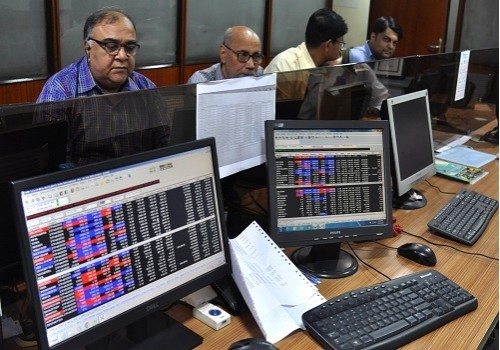








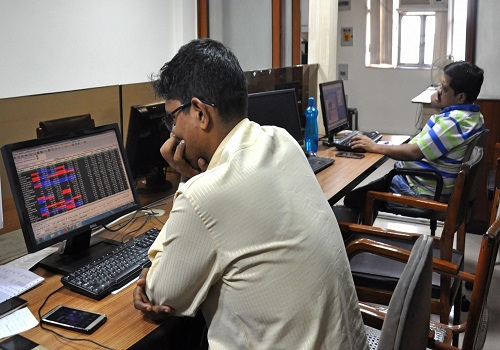
Tag News

Weekly Market Analysis : Markets strengthened recovery and gained nearly 2% in the passing w...






